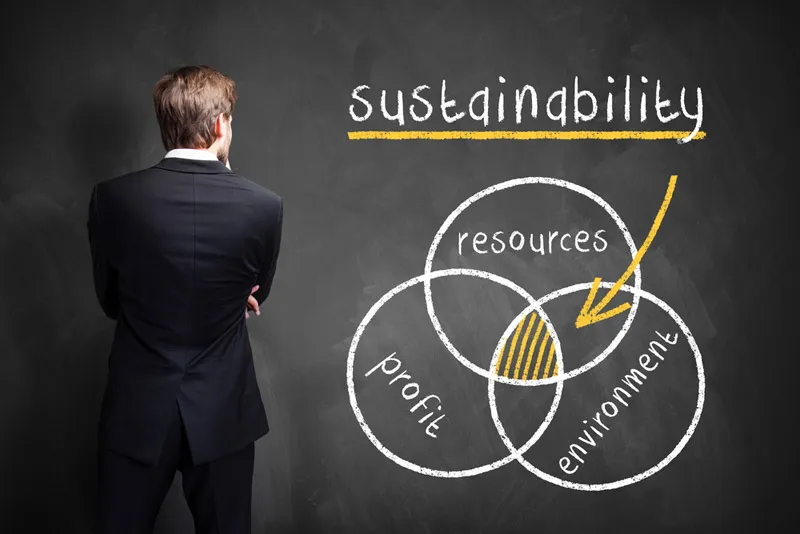Sustainability practices and goals need to be communicated too
The word ‘sustainability’ sounds unnecessarily big, so much so that it comes across as a strategic initiative that needs to be incorporated into the scheme of things for a big company. Nothing could be further from the truth. One does not need to adopt a sustainable path only if one is big; and it does not mean that a small business does not have the right to follow a sustainable approach. Everyone can and everyone needs to be sustainable.
Yet, it is not enough to be sustainable in one’s one way; certainly not till one is able to communicate it to the team itself, besides business partners, suppliers, customers and other stakeholders. Everyone should know, everyone should be communicated to.

Image credit “ShutterStock“
Here are some ways through which one can communicate the sustainability commitments of a small business:
- Chalk out a sustainability plan, put it in the public domain: A public statement about one’s goals and practices is the best way to maintain transparency. Far too many companies in recent times have been accused of being opaque in the way they run their own organisations and carry about their business. A public statement is also a commitment, and this desire becomes transparent when one sets goals for sustainability and publishes the same on the official website. This ensures accountability to society on the whole.
- Reduce energy consumption in transportation: Profligacy takes form in different ways, one of them being the rampant and arguably avoidable over-usage of vehicles for official work. Cutting down on cab usage can cut down on costs, as well as reduce carbon footprint. In today’s world of communications (from Skype on mobiles to a slightly larger framework of video conferencing), one doesn’t need to travel all the time. And yes, this saves time too.
- Go in for green packaging: Recycled packaging is talked about considerably. There’s of course no substitute for that, but packaging (when not a product of recycling or reusing) needs to be green too. Any packaging material, when it cannot be recycled or reused, very necessarily results in generation of waste. With Indian cities sinking under the weight of the humongous amount of garbage that they generate every single day, one needs to cut down on packaging materials that are not green. Too much packaging creates waste and consumes a lot of carbon to produce and transport. Ideally, the packaging should be minimal.
- Promote recycling in the supply chain: More companies have been resorting to this practice, ever since Wal-Mart announced plans a few years ago to assess suppliers using its ‘Sustainability Index,’ which considers everything from packaging materials and waste disposal to energy efficiency and greenhouse gas emissions. Wal-Mart may perhaps be a bad choice for an example (the organisation is controversial for many reasons), but the practice itself is not. A clean supply chain makes sustainability a commitment to be adhered to for everyone. Everyone, therefore, has a role to play.
- Reward consumers: The grand exchange schemes that big departmental stores often launch, urging consumers to trade in their old and unusable products, from clothes to utensils, may have their plus points. But this is not even a drop in the ocean; it’s only another way of availing of discounts. It’s all fine in preaching about the benefits of recycling to people; it’s quite another to pay them for doing the same. It becomes more feasible a proposition, with far-reaching consequences, when one rewards one’s own consumers for recycling, reusing and reducing. After all, how many companies can think of urging their buyers to reduce usage of its own products.
- Reduce overall energy usage: One needs to ensure that the business is energy-efficient, particularly since energy use is a crucial factor in many of the sustainability indexes. Usage of high-efficiency lights, such as carbon fluorescent lights (CFLs), LEDs or T-8 fluorescents, go a long way in energy consumption. This is only about power consumption. Energy-efficiency in power consumption has a far-reaching impact on both extraction of fossil fuels, as well as associated environmental pollution. Both need to be cut down, and drastically at that.
- Associate with green organisations: Needless to say, this ought not to be a way to greenwash one’s environmental or social sins. There are countless non-profits out there doing their own bit, trying to make the world a better place. There are many who help / advise businesses on how to reduce their ecological footprint, and become more sustainable in the process. It is also a better idea to get strategies vetted by critics, rather than paying an obliging consultant who is there only to say aye, irrespective of whether you are right or wrong.







